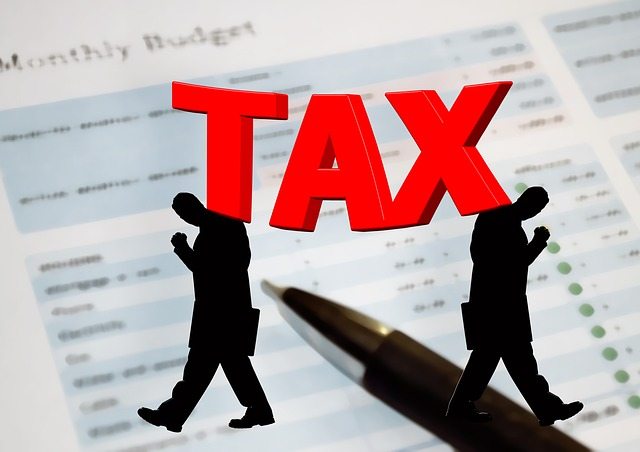Individual taxes
Personal Income Tax – 15%
Applies to all types of incomes, excluding the Personal Income Tax on Employment Income.
Non-taxable incomes (for purposes of Personal Income Tax):
- Voluntary contributions to a pension fund
- Returns from investment on a pension fund’s assets
- Real Estate tax
- Voluntary health and life insurance expenses
Corporate taxes
Corporate Income Tax – 15%
Exemptions:
Voluntary health and life insurance expenses
Withholding tax
Withholding tax – 15%
The withholding tax for payments to non-resident persons and not-registered individuals is 15% of the gross payments.
National Taxes
Tax on Premiums – 3% of the premium
(Collected by insurance companies)
Exemptions:
- Life insurance premiums
- Health Insurance
- Travel / international vehicle insurance
Circulation tax – 27 ALL / liter
(On petrol & diesel / imported and domestically produced)
Exemptions:
Fishing vessels
Royalty tax
Royalty tax for the metallic content of the mineral by-products will be equal to 2/3 of the rates in force
Penalties
Failure to pay on time the correct amount of the tax liability or contribution will be subject to a penalty equal to 0.06% of the unpaid amount per each day of delay, up to a maximum of 365 days (equal to 21.9% of the unpaid liability). Before the amendment, this penalty amounted to 5% of the unpaid liability for each month or part of a month in delay, up to a maximum of 25%.
The same penalties i.e. 0.06% per each day of delay, up to a maximum of 365 days, applies also to incorrect filings resulting in unpaid or over-credited amounts of taxes and contributions.
Incorrect application of the reverse-charge mechanism by the Albanian beneficiary or non-application of the reverse-charge mechanism by the Albanian beneficiary, liable to pay VAT on services from non-residents (based on the rules of the new VAT Law), will be subject to the following penalties:
- A penalty of ALL 50,000 when the taxpayer has failed to issue a reverse-charge invoice as required by the new Law On VAT, but such failure has not affected the VAT liability;
- A penalty amounting to 100% of the VAT liability when the taxpayer has failed to issue a reverse-charge invoice as required by the new Law On VAT, and such failure has affected the VAT liability;
- A penalty amounting to 50% of the unpaid amount or incorrectly claimed tax when the reverse-charge invoice is not issued in line with the requirements of the new Law On VAT;
- A penalty equal to 0.06% per day of the unpaid amount of VAT for a period up to 365 calendar days when the taxpayer has issued the reverse-charge invoice but has failed to declare it by affecting the VAT liability.
- Taxpayers not registered for VAT and CIT will be subject to a penalty of ALL 50,000 for the non-declaration of employees.
Tax appeal
The period of time for the Tax Appeal Directorate (under the General Tax Directorate) to issue a decision in response to a tax appeal is reduced from 90 days to 60 days.
Taxpayers willing to appeal a notice of assessment by using a bank guarantee for the number of tax liabilities and interest should provide a guarantee with a validity period of a minimum of 6 months and in any case not shorter than the period until the decision has become final/enforceable.
The General Tax Directorate should publish in its official website the final decisions of the Administrative Court of Appeal, Supreme Court and the Constitutional Court on tax matters.
Tax refund
The right of the taxpayers to request the refund of a tax credit balance is limited to within 5 years after the respective tax return has been filed (same as the ‘statute of limitation’ for the right of re-assessment by the tax authorities).
If a taxpayer with a VAT credit balance (and meeting the conditions for refund) requests to the Regional Tax Directorate the VAT refund, the latter is obliged to verify the tax situation and approve the amount of refund within 30 days for exporters and 60 days for all other taxpayers.
When necessary (based on the risk analysis), the Regional Tax Directorate may conduct a tax audit at the taxpayer’s premises. Once the amount of refund is approved, the state budget should disburse in cash the approved balance to the taxpayer within 5 days. Otherwise, the taxpayer has the right to not pay other tax liabilities up to the amount pending for refund.
Fiscal evasion
The definition of ‘fiscal evasion’ includes the concealment or avoidance of tax liabilities by not submitting tax declarations or not declaring the necessary information. The following infringements have been designated as consisting in fiscal evasion (and being therefore subject to penalties of 100% of the tax liabilities implied, in addition to other administrative penalties):
- The recurrent non-declaration of the employees at least one day before the start of employment;
- Maintenance, utilization, and transportation of goods by non-registered persons;
- Non-installation of the electronic cash register or non-issuance of fiscal coupons
In these cases, the Tax Administration has the right to charge the taxpayer with a criminal offense.

Leave a Reply
You must be logged in to post a comment.